Postmodernist Fiction in Games
Spoilers for all the games in this list in notes. You have been warned.
Postmodernist fiction stages a confrontation between the real world and the fictional world, thereby blurring the boundaries of reality and attempting to recontextualize the accepted narratives that the world runs by. Games, in this sense, are some of the most powerful pieces of media for this with how many resources are given to them and how much they're allowed to do as computer programs. This list catalogues games primarily or significantly featuring postmodernist storytelling, either through gameplay or through story.
Features of Postmodernist Fiction / Literature:
Intertextuality
Parallelism or direct usage of other fictional works and their facets within a fictional setting.
Pastiche
In which various pieces of media or culture are used or mimicked to achieve parodic or commentary goals.
Metafiction
A narrative style that highlights the foregrounding of authorship and the relationship of art and audience.
Poioumena
In which a story serves as an allegory or fictionalized documentation of the creation of art, typically in conjunction with metafiction.
Temporal Distortion
Not strictly 'postmodern' as much as the others, but the usage of non-linear time within postmodernism is frequent and often used in conjunction with metafiction.
Hyperreality
In which the relation between simulacra and reality is used as a thematic element.
For more detailed writing on this, be sure to check out 'Postmodernism in Video Games' by Dominik Markowski.
Postmodernist fiction stages a confrontation between the real world and the fictional world, thereby blurring the boundaries of reality and attempting to recontextualize the accepted narratives that the world runs by. Games, in this sense, are some of the most powerful pieces of media for this with how many resources are given to them and how much they're allowed to do as computer programs. This list catalogues games primarily or significantly featuring postmodernist storytelling, either through gameplay or through story.
Features of Postmodernist Fiction / Literature:
Intertextuality
Parallelism or direct usage of other fictional works and their facets within a fictional setting.
Pastiche
In which various pieces of media or culture are used or mimicked to achieve parodic or commentary goals.
Metafiction
A narrative style that highlights the foregrounding of authorship and the relationship of art and audience.
Poioumena
In which a story serves as an allegory or fictionalized documentation of the creation of art, typically in conjunction with metafiction.
Temporal Distortion
Not strictly 'postmodern' as much as the others, but the usage of non-linear time within postmodernism is frequent and often used in conjunction with metafiction.
Hyperreality
In which the relation between simulacra and reality is used as a thematic element.
For more detailed writing on this, be sure to check out 'Postmodernism in Video Games' by Dominik Markowski.
49 Games
[[ Poioumena :: Hyperreality ]]
This game was designed with the explicit goal of being everything that wasn't a video game at the time.
Including, but not limited to, parts of the game where the only way to progress was to shout or sing into the second Famicom controller's microphone.
This is a one-player game.
This game was designed with the explicit goal of being everything that wasn't a video game at the time.
Including, but not limited to, parts of the game where the only way to progress was to shout or sing into the second Famicom controller's microphone.
This is a one-player game.
[[ Hyperreality :: Metafiction ]]
Whereas typical virtual pet games only break the fourth wall insofar as you, the player, are the caretaker of the pet(s), Seaman takes it one step further.
Seamen talks in your set language, and will ask you questions based on your real, personal life. This is how the creatures evolve, and it can take actual real life days to see progress as would real pets. You respond using the provided microphone, but only when it's in the mood. You can end up having full-length conversations with your Seaman should you strike a bond.
One set of lines in particular is of note: a Seaman will tell you that it exists as much as they do, implying and then stating that perception is the only reality which exists. Seamen 'exist as a part of your consciousness', allowing you to suspend the reality you know to be true.
Should you neglect your Seamen, it will die, and altering your console's internal clock doesn't work. As per the manual: "Note that you will be unable to return to a previous stage. Such as with life itself, you may only continue forwards."
Whereas typical virtual pet games only break the fourth wall insofar as you, the player, are the caretaker of the pet(s), Seaman takes it one step further.
Seamen talks in your set language, and will ask you questions based on your real, personal life. This is how the creatures evolve, and it can take actual real life days to see progress as would real pets. You respond using the provided microphone, but only when it's in the mood. You can end up having full-length conversations with your Seaman should you strike a bond.
One set of lines in particular is of note: a Seaman will tell you that it exists as much as they do, implying and then stating that perception is the only reality which exists. Seamen 'exist as a part of your consciousness', allowing you to suspend the reality you know to be true.
Should you neglect your Seamen, it will die, and altering your console's internal clock doesn't work. As per the manual: "Note that you will be unable to return to a previous stage. Such as with life itself, you may only continue forwards."
[[ Hyperreality :: Temporal Distortion ]]
At any given point in the game in which the sanity of your character is too low, many things can happen that are designed to trick you into thinking something in the real world is happening.
Examples include muting (most of) the audio from the game while a volume meter designed to look like your TV's volume meter pops up on screen; Blacking out the screen entirely, indicating some form of video switch; Flashing up a very sudden cutscene, followed by a false advertisement for a sequel; and, most infamously, one sanity effect makes you think that the game deleted your entire save file.
At any given point in the game in which the sanity of your character is too low, many things can happen that are designed to trick you into thinking something in the real world is happening.
Examples include muting (most of) the audio from the game while a volume meter designed to look like your TV's volume meter pops up on screen; Blacking out the screen entirely, indicating some form of video switch; Flashing up a very sudden cutscene, followed by a false advertisement for a sequel; and, most infamously, one sanity effect makes you think that the game deleted your entire save file.
[[ Hyperreality :: Metafiction :: Intertextuality ]]
The game threatens (and then pretend-succeeds) to take your files hostage and murder them should you fail to go through the mazes proper.
Think Lose/Lose but without actually doing anything to your computer.
The game threatens (and then pretend-succeeds) to take your files hostage and murder them should you fail to go through the mazes proper.
Think Lose/Lose but without actually doing anything to your computer.
[[ Intertextuality ]]
RAM CHECK OK!
ROM CHECK FAIL!
A bunch of classic 1980s games are merged into a series of microgames that barely make sense.
RAM CHECK OK!
ROM CHECK FAIL!
A bunch of classic 1980s games are merged into a series of microgames that barely make sense.
[[ Metafiction ]]
The player is a conduit for the missionary, The Batter, as he systematically nullifies and purifies everything in the game that is deemed impure.
This then leads to the realization that, by opening the game and helping slaughter all that drew breath in it, there is no other force to blame than the player themselves.
The player is a conduit for the missionary, The Batter, as he systematically nullifies and purifies everything in the game that is deemed impure.
This then leads to the realization that, by opening the game and helping slaughter all that drew breath in it, there is no other force to blame than the player themselves.
[[ Hyperreality ]]
A game that actively deletes your files as you defeat enemies and progress. Do not play this game unless you want to potentially brick your entire computer.
A game that actively deletes your files as you defeat enemies and progress. Do not play this game unless you want to potentially brick your entire computer.
[[ Metafiction :: Poioumena :: Hyperreality ]]
The game is a sentient and angry computer, absolutely distraught at the idea of letting you progress any further within it.
To progress, you effectively have to strong-arm the game's weaknesses and brute-force certain puzzles, including one section where you have to repeatedly spam a command until the game straight gives up and lets you go to the next segment.
Once you finally leave, the game very visibly is distraught and upset by their loss.
The game is a sentient and angry computer, absolutely distraught at the idea of letting you progress any further within it.
To progress, you effectively have to strong-arm the game's weaknesses and brute-force certain puzzles, including one section where you have to repeatedly spam a command until the game straight gives up and lets you go to the next segment.
Once you finally leave, the game very visibly is distraught and upset by their loss.
[[ Metafiction ]]
The game purports to give access to the hidden Lavender Town frequencies heard on the internet in the form of creepypasta.
The game suggests that you quit with the escape button. Upon doing so, the game reboots and the button no longer works as (really bad) phasers are overlayed above the Lavender Town theme and shuffling text threatens you with some oncoming force, reading your desktop name.
After all is done, it says that you will have nightmares for the rest of your life.
lol
The game purports to give access to the hidden Lavender Town frequencies heard on the internet in the form of creepypasta.
The game suggests that you quit with the escape button. Upon doing so, the game reboots and the button no longer works as (really bad) phasers are overlayed above the Lavender Town theme and shuffling text threatens you with some oncoming force, reading your desktop name.
After all is done, it says that you will have nightmares for the rest of your life.
lol
[[ Hyperreality :: Metafiction ]]
Two puzzles, a potential easter egg, and the true ending.
The Clock Tower puzzle generates an anti-cube every interval on your real world system. This means that you would have to either set your clock to get all of the cubes from the tower, or you would need to wait real time for them to generate.
The Black Monolith puzzle requires that you beat the game one time, and start a New Game+, which allows you to see in first-person. Then, solve the the puzzle in the room. A black monolith appears from the platform. From there, you're on your own. There is no known way to solve it beyond brute-forcing the button combination, and it's still unclear to this day the way that you're intended to solve it.
Assuming you'd 209.4%'d the game, go to the trophy fountain room with the red heart. Enter a specific button combination whose solution process, yet again, is unknown to the public. The heart's cubes float away and the game restarts, but the red cubes are gone forever.
The true ending of the game hints at the idea of the game being a simulation, inside a simulation, inside a simulation.
Two puzzles, a potential easter egg, and the true ending.
The Clock Tower puzzle generates an anti-cube every interval on your real world system. This means that you would have to either set your clock to get all of the cubes from the tower, or you would need to wait real time for them to generate.
The Black Monolith puzzle requires that you beat the game one time, and start a New Game+, which allows you to see in first-person. Then, solve the the puzzle in the room. A black monolith appears from the platform. From there, you're on your own. There is no known way to solve it beyond brute-forcing the button combination, and it's still unclear to this day the way that you're intended to solve it.
Assuming you'd 209.4%'d the game, go to the trophy fountain room with the red heart. Enter a specific button combination whose solution process, yet again, is unknown to the public. The heart's cubes float away and the game restarts, but the red cubes are gone forever.
The true ending of the game hints at the idea of the game being a simulation, inside a simulation, inside a simulation.
[[ Hyperreality :: Metafiction ]]
Throughout the game, it is hinted that the blocks know about their existence as AI, developed and then abandoned by a team of technicians. This becomes confirmed late into the game, with Thomas eventually gaining access to the internet as a whole, thus being exposed to the real world. Cue early 2010s meme culture references.
In turn, there are three layers of reality in this: The reality that Thomas and the rest of the AI are experiencing, the reality of the developers who abandoned the AI, and our reality. Thomas managed to pierce through both of the ones he knew at the same time, into our reality.
Throughout the game, it is hinted that the blocks know about their existence as AI, developed and then abandoned by a team of technicians. This becomes confirmed late into the game, with Thomas eventually gaining access to the internet as a whole, thus being exposed to the real world. Cue early 2010s meme culture references.
In turn, there are three layers of reality in this: The reality that Thomas and the rest of the AI are experiencing, the reality of the developers who abandoned the AI, and our reality. Thomas managed to pierce through both of the ones he knew at the same time, into our reality.
[[ Metafiction :: Poioumena ]]
Nothing too drastic in the main game, however the post-game has a lot more in store.
Firstly, the tool you're given after you beat the final boss is capable of accessing parts that were impossible to get to in the original game. It also allows you to straight-up glitch out of bounds, ending up in a sort of 'parallel universe' of the game covered in glitchy blocks and with little to interact with.
Secondly, there's some areas that are oddly designed or look unfinished. This is intentional, as the devs took a lot of liberty to hide the extra cards you would need to 100% the New Game+ in places like the debug map and the house you spawn in if you say no on the game over screen.
In the New Game+, this is a recurring theme. The developers intentionally designed for the exploitation of glitches and bugs in the player's pursuit of finding all the cards.
However, after collecting 49 cards (one being a glitched all-red card only findable through glitches), opening the requisite gate leads you to another gate, requiring 50 cards.
There exists no way to get a 50th card, and bypassing the gate reveals nothing beyond a vast void, intended to represent the end of the player's journey.
Nothing too drastic in the main game, however the post-game has a lot more in store.
Firstly, the tool you're given after you beat the final boss is capable of accessing parts that were impossible to get to in the original game. It also allows you to straight-up glitch out of bounds, ending up in a sort of 'parallel universe' of the game covered in glitchy blocks and with little to interact with.
Secondly, there's some areas that are oddly designed or look unfinished. This is intentional, as the devs took a lot of liberty to hide the extra cards you would need to 100% the New Game+ in places like the debug map and the house you spawn in if you say no on the game over screen.
In the New Game+, this is a recurring theme. The developers intentionally designed for the exploitation of glitches and bugs in the player's pursuit of finding all the cards.
However, after collecting 49 cards (one being a glitched all-red card only findable through glitches), opening the requisite gate leads you to another gate, requiring 50 cards.
There exists no way to get a 50th card, and bypassing the gate reveals nothing beyond a vast void, intended to represent the end of the player's journey.
[[ Poioumena ]]
A lowly game creator is under fire from police after an unexplained murder.
After the death of his compatriot, we cut to a speech given by the same murderer as he gradually spirals into a diatribe about his originality with his games, how he was there for the first whatever, that he created the first whatever, that he coined whatever, before gradually exclaiming that he is dead and in hell.
The program closes itself.
A lowly game creator is under fire from police after an unexplained murder.
After the death of his compatriot, we cut to a speech given by the same murderer as he gradually spirals into a diatribe about his originality with his games, how he was there for the first whatever, that he created the first whatever, that he coined whatever, before gradually exclaiming that he is dead and in hell.
The program closes itself.
The Stanley Parable is a game whose very core is postmodern, to the point where I don't think I can properly indicate it without a total and involved dissertation. For the sake of convenience and not wasting your time, here are the biggest/most flamboyantly postmodern endings:
1) [[ Intertextuality :: Poioumena ]]
After disobeying the narrator and not playing a single-button game for five hours straight, he decides to put you in a Minecraft world that really convincingly feels like the real thing, complete with ambient sounds, caves, dirt houses, and all.
Once you explore a dark cave, he suddenly wishes for the game to be more linear, and subsequently puts you in the beginning room of Portal. Again, extremely close in appearance to the actual thing. Once you solve the puzzle, he up and abandons you while you explore the remains of the original Gmod map that The Stanley Parable map was based off of, abandoned and dilapidated.
2) [[ Metafiction :: Poioumena ]]
Enabling the developer's console and then attempting to put 'sv_cheats 1' at any moment in the game gets you a stern talking to by the developer, chastising you for disrespecting the developer by cheating and potentially breaking the game.
3) [ Metafiction :: Poioumena :: Hyperreality :: Pastiche ]
Unplugging the phone that leads you to your apartment makes the narrator realize that the reason you'd been making 'the wrong choices' is due to the fact that he didn't realize there was a human on the other side. Cue parody of mid-1900s informational videos informing about the "correct" way to make choices.
The game begins to deteriorate as a direct result of your choices, leading the narrator to plop you in the infamous two-door fork.
Going to the right door against the wishes of the narrator causes the game to glitch profusely, merging chairs and causing textures to suddenly merge with one another. "You've destroyed my work!" He shuts down the game to leave you in the dark remains of your recklessness.
Going to the left door leads to a slightly tweaked version of the 'normal' ending sequence, in which the player must input the phrase "Night Shark 1-1-5" to a voice-lock. There is no functionality to it, and it ends with the narrator becoming pissed at the player for wasting his time.
The game cuts to an outside perspective where Stanley is an idle model in the two-door fork, the player unable to do anything but watch as the narrator helplessly cries for him to do something, anything, to no avail.
Roll credits.
1) [[ Intertextuality :: Poioumena ]]
After disobeying the narrator and not playing a single-button game for five hours straight, he decides to put you in a Minecraft world that really convincingly feels like the real thing, complete with ambient sounds, caves, dirt houses, and all.
Once you explore a dark cave, he suddenly wishes for the game to be more linear, and subsequently puts you in the beginning room of Portal. Again, extremely close in appearance to the actual thing. Once you solve the puzzle, he up and abandons you while you explore the remains of the original Gmod map that The Stanley Parable map was based off of, abandoned and dilapidated.
2) [[ Metafiction :: Poioumena ]]
Enabling the developer's console and then attempting to put 'sv_cheats 1' at any moment in the game gets you a stern talking to by the developer, chastising you for disrespecting the developer by cheating and potentially breaking the game.
3) [ Metafiction :: Poioumena :: Hyperreality :: Pastiche ]
Unplugging the phone that leads you to your apartment makes the narrator realize that the reason you'd been making 'the wrong choices' is due to the fact that he didn't realize there was a human on the other side. Cue parody of mid-1900s informational videos informing about the "correct" way to make choices.
The game begins to deteriorate as a direct result of your choices, leading the narrator to plop you in the infamous two-door fork.
Going to the right door against the wishes of the narrator causes the game to glitch profusely, merging chairs and causing textures to suddenly merge with one another. "You've destroyed my work!" He shuts down the game to leave you in the dark remains of your recklessness.
Going to the left door leads to a slightly tweaked version of the 'normal' ending sequence, in which the player must input the phrase "Night Shark 1-1-5" to a voice-lock. There is no functionality to it, and it ends with the narrator becoming pissed at the player for wasting his time.
The game cuts to an outside perspective where Stanley is an idle model in the two-door fork, the player unable to do anything but watch as the narrator helplessly cries for him to do something, anything, to no avail.
Roll credits.
[[ Metafiction :: Temporal Distortion ]]
The game's normal endings have intentionally bugged text when the uncle speaks.
The game's true ending only comes after going through all the normal endings, at which point where the game would normally throw you into the ending screen, it instead continues the story and allows you to stop the time-loops where you die at the hands of the Uncle, putting him to rest.
The game's normal endings have intentionally bugged text when the uncle speaks.
The game's true ending only comes after going through all the normal endings, at which point where the game would normally throw you into the ending screen, it instead continues the story and allows you to stop the time-loops where you die at the hands of the Uncle, putting him to rest.
[[ Poioumena :: Hyperreality :: Metafiction ]]
The game is trapped in development hell and you have to 'fix' it from the inside out while the developers struggle to understand what's going on.
The game is trapped in development hell and you have to 'fix' it from the inside out while the developers struggle to understand what's going on.
[[ Poioumena :: Metafiction :: Pastiche ]]
The developer of the "non-game" really does not want you to play. Bullshit.
The developer of the "non-game" really does not want you to play. Bullshit.
[[ Hyperreality ]]
The entire point of the game is to glitch and pry your way everywhere. There is no ending to this game.
There are also numerous (now broken) codes which link to maps, websites, and other media related to the game.
The entire point of the game is to glitch and pry your way everywhere. There is no ending to this game.
There are also numerous (now broken) codes which link to maps, websites, and other media related to the game.
[[ Pastiche :: Intertextuality :: Hyperreality ]]
A disgruntled Luigi muses about his crazy brother, Mario, as he begins to contemplate the meaning of existence wholesale in a world that has had no consistent rules since he step foot in it.
Luigi is trapped with a chain-smoking habit, no physical desire to eat, and the lingering memories of being anywhere that wasn't a video game.
A disgruntled Luigi muses about his crazy brother, Mario, as he begins to contemplate the meaning of existence wholesale in a world that has had no consistent rules since he step foot in it.
Luigi is trapped with a chain-smoking habit, no physical desire to eat, and the lingering memories of being anywhere that wasn't a video game.
[[ Hyperreality :: Metafiction :: Temporal Distortion ]]
The game will remember previous playthroughs and will react in accordance to the amount of murder the player has done in that time, with Sans at the end of the playthrough judging your actions.
This comes to a head after the Genocide route, in which Chara irreparably changes your save file to make sure that there is no guaranteed happy ending over the next playthroughs.
The game will remember previous playthroughs and will react in accordance to the amount of murder the player has done in that time, with Sans at the end of the playthrough judging your actions.
This comes to a head after the Genocide route, in which Chara irreparably changes your save file to make sure that there is no guaranteed happy ending over the next playthroughs.
[[ Poioumena :: Pastiche :: Intertextuality(?) ]]
The entire conceit of The Beginner's Guide is that it consists of a compilation of games by the ex-friend of the compiler as an attempt to get their attention.
Throughout these games, there are constant remarks by Davey that suggest the need for validation, the need for approval from others, and especially from Coda, the ex-friend of Davey.
This all comes to a head when it's revealed that the reason Coda stopped making games was because of how his audience (in this case, Davey) constantly tried to push the idea of there being deeper meaning within his games when there wasn't any to begin with.
The game serves as commentary on the pitfalls of art in an age where anyone could potentially psychoanalyze you for it.
The entire conceit of The Beginner's Guide is that it consists of a compilation of games by the ex-friend of the compiler as an attempt to get their attention.
Throughout these games, there are constant remarks by Davey that suggest the need for validation, the need for approval from others, and especially from Coda, the ex-friend of Davey.
This all comes to a head when it's revealed that the reason Coda stopped making games was because of how his audience (in this case, Davey) constantly tried to push the idea of there being deeper meaning within his games when there wasn't any to begin with.
The game serves as commentary on the pitfalls of art in an age where anyone could potentially psychoanalyze you for it.
[[ Poioumena ]]
Aw man, isn't this so exciting? You're gonna be playing in this awesome heist game with a ferocious tiger!
Um... oh.
Oh. There's someone already in line ahead of you.
Guess you'll have to resort to running the errands of everyone running the production, considering they've all gone on strike.
Aw man, isn't this so exciting? You're gonna be playing in this awesome heist game with a ferocious tiger!
Um... oh.
Oh. There's someone already in line ahead of you.
Guess you'll have to resort to running the errands of everyone running the production, considering they've all gone on strike.
[[ Hyperreality :: Metafiction :: Temporal Distortion ]]
The antagonist of the game uses various tricks towards the goal of keeping himself on the player's computer to stave off his loneliness.
At the final ending of the game, you can kill him by deleting his 'heart' (a file in the game's folders), thus rendering the game inert and his soul gone from your computer.
The antagonist of the game uses various tricks towards the goal of keeping himself on the player's computer to stave off his loneliness.
At the final ending of the game, you can kill him by deleting his 'heart' (a file in the game's folders), thus rendering the game inert and his soul gone from your computer.
[[ Hyperreality ]]
The game about vicious media cycles propagated through constant news on social media, is being broadcast on a computer, which is being broadcast on a computer, which is being broadcast on your computer.
The game about vicious media cycles propagated through constant news on social media, is being broadcast on a computer, which is being broadcast on a computer, which is being broadcast on your computer.
[[ Metafiction :: Temporal Distortion ]]
The main character, Niko, is guided by the player as a type of god character and frequently converses with them. There are multiple puzzles in the game that require accessing the game's files or scavenging for files placed on the player's computer to advance.
In the Solstice ending, it is revealed that the game itself was a flawed simulation turned sentient, resorting to self-harm and the dooming of the people within.
The main character, Niko, is guided by the player as a type of god character and frequently converses with them. There are multiple puzzles in the game that require accessing the game's files or scavenging for files placed on the player's computer to advance.
In the Solstice ending, it is revealed that the game itself was a flawed simulation turned sentient, resorting to self-harm and the dooming of the people within.
[[ Hyperreality :: Poioumena :: Metafiction ]]
In the sixth and final trial, it is revealed that Tsumugi Shirogane (Junko Enoshima the 53rd) is running the show in accordance to how previous killing games had been run.
She is consistently swapping appearances between the likenesses of different characters from over the course of the game, somehow not developing the previously known "cospox", leading Shuichi and the remaining crew to come to the conclusion that everything that has transpired up to this point has been nothing but fiction.
Tsumugi then reveals that everything, including the emotions and memories of the characters, are not but the whims of Team Danganronpa, who create the Danganronpa games and have been crafting the fiction of these characters. V3 is the 53rd iteration of the killing game. All the while, the faces of fans are painted across screens in the courtroom, some of them yelling at the characters. The main protagonists of Danganronpa V3 were once real people as well, though what happened to their real counterparts is not known.
These fans are of the real world, helping perpetuate the murders within the fiction via their support of Team Danganronpa. Eventually, Keebo is forced to act as the speaker for the voices of the outside world as he is made the archetypal "audience surrogate". This leads to a sequence where the audience is consistently complaining about the meta nature and other qualms about the story, before quite literally breaking the wall that presumably keeps the game's fiction and reality separated.
In the sixth and final trial, it is revealed that Tsumugi Shirogane (Junko Enoshima the 53rd) is running the show in accordance to how previous killing games had been run.
She is consistently swapping appearances between the likenesses of different characters from over the course of the game, somehow not developing the previously known "cospox", leading Shuichi and the remaining crew to come to the conclusion that everything that has transpired up to this point has been nothing but fiction.
Tsumugi then reveals that everything, including the emotions and memories of the characters, are not but the whims of Team Danganronpa, who create the Danganronpa games and have been crafting the fiction of these characters. V3 is the 53rd iteration of the killing game. All the while, the faces of fans are painted across screens in the courtroom, some of them yelling at the characters. The main protagonists of Danganronpa V3 were once real people as well, though what happened to their real counterparts is not known.
These fans are of the real world, helping perpetuate the murders within the fiction via their support of Team Danganronpa. Eventually, Keebo is forced to act as the speaker for the voices of the outside world as he is made the archetypal "audience surrogate". This leads to a sequence where the audience is consistently complaining about the meta nature and other qualms about the story, before quite literally breaking the wall that presumably keeps the game's fiction and reality separated.
[[ Hyperreality :: Temporal Distortion :: Metafiction :: Pastiche ]]
Monika, one of the girls in the club, intentionally uses her power over the game's code as a wedge between the player and her, deleting or tampering with the other girls' files and thus erasing themselves from the existence of the game entirely, as if they had never existed in the first place.
It is stated later on (depending on the endings you get) that whoever is the president of the Literature Club at any present moment is presented with the reality of their situation, that they have no free will and only exist inside a video game.
Monika, one of the girls in the club, intentionally uses her power over the game's code as a wedge between the player and her, deleting or tampering with the other girls' files and thus erasing themselves from the existence of the game entirely, as if they had never existed in the first place.
It is stated later on (depending on the endings you get) that whoever is the president of the Literature Club at any present moment is presented with the reality of their situation, that they have no free will and only exist inside a video game.
[[ Metafiction ]]
You are tasked, after failing to push a button, to fix the back-end of the game by contacting the various workers inside and restore power to the game's button.
You are tasked, after failing to push a button, to fix the back-end of the game by contacting the various workers inside and restore power to the game's button.
[[ Pastiche :: Hyperreality :: Metafiction ]]
The Hex uses pastiches of many genres and themes to serve as commentary on the fact that nobody is ever satisfied with anything, ever. Specifically, gamers.
It also ends with the main cast murdering the developer of the game.
The Hex uses pastiches of many genres and themes to serve as commentary on the fact that nobody is ever satisfied with anything, ever. Specifically, gamers.
It also ends with the main cast murdering the developer of the game.
[[ Metafiction :: Hyperreality :: Intertextuality :: Temporal Distortion ]]
Should you venture down into the south dock, after the game repeatedly hints that the main character is suffering acutely from venturing down it, you will find yourself in a gauntlet of rooms that contain broken and disheveled designs. Some of them are interactive, displaying dialogue from the game, or some straight-up displaying the code from whence the game was built.
Traveling through blocks with no collision (with no indication of what is walkable and what isn't, paved by the very blocks and tiles used to make the fabric of the game's reality real) eventually lands you in a room with various letters. One, upon interacting with it, follows:
"Not everything has some hidden meaning, that's what I was trying top tell her, but she wouldn't believe me. You can't always read between the lines, not everything can be decoded. It's something of a disease isn't it, a cancer of pattern recognition. But I have always believed in fiction, that fiction is fiction. Sometimes 'goodbye' just means 'goodbye'."
Exiting the room leaves the protagonist in a delirious state, only to realize that they missed their train and have to stay the night.
It is arguable that what they experienced could not be comprehensible by someone from within the fiction, thus leading to the hysteria they had become witness to.
Should you venture down into the south dock, after the game repeatedly hints that the main character is suffering acutely from venturing down it, you will find yourself in a gauntlet of rooms that contain broken and disheveled designs. Some of them are interactive, displaying dialogue from the game, or some straight-up displaying the code from whence the game was built.
Traveling through blocks with no collision (with no indication of what is walkable and what isn't, paved by the very blocks and tiles used to make the fabric of the game's reality real) eventually lands you in a room with various letters. One, upon interacting with it, follows:
"Not everything has some hidden meaning, that's what I was trying top tell her, but she wouldn't believe me. You can't always read between the lines, not everything can be decoded. It's something of a disease isn't it, a cancer of pattern recognition. But I have always believed in fiction, that fiction is fiction. Sometimes 'goodbye' just means 'goodbye'."
Exiting the room leaves the protagonist in a delirious state, only to realize that they missed their train and have to stay the night.
It is arguable that what they experienced could not be comprehensible by someone from within the fiction, thus leading to the hysteria they had become witness to.
[[ Hyperreality :: Poioumena :: Metafiction ]]
The protagonist is attempting to make a game, but he keeps having urges and premonitions of a set-in-stone path he has no choice but to take in life.
This comes to a head as he soon discovers that his choices are not his, but, instead, the player. This includes a scene where the player can outright communicate with him, telling him about Netflix. As the film is set in the 1980s, he is confused and scared as can be at this revelation.
The protagonist is attempting to make a game, but he keeps having urges and premonitions of a set-in-stone path he has no choice but to take in life.
This comes to a head as he soon discovers that his choices are not his, but, instead, the player. This includes a scene where the player can outright communicate with him, telling him about Netflix. As the film is set in the 1980s, he is confused and scared as can be at this revelation.
[[ Metafiction ]]
At the beginning of the game, you are asked to put in the info of yourself and the names of your friends. That information is seemingly discarded for the rest of the game.
At least, until Alex confronts your reality in communication through the game and calls upon you (the player) to help him through your device, and recruits your friends to help in saving the one reality that still exists: Yours.
At the beginning of the game, you are asked to put in the info of yourself and the names of your friends. That information is seemingly discarded for the rest of the game.
At least, until Alex confronts your reality in communication through the game and calls upon you (the player) to help him through your device, and recruits your friends to help in saving the one reality that still exists: Yours.
[[ Hyperreality ]]
You have to break the game's code to solve it. That's the entire game.
You have to break the game's code to solve it. That's the entire game.
[[ Metafiction :: Hyperreality ]]
Get Kevin out of the game.
Get Kevin out of the game.
[[ Hyperreality :: Pastiche :: Metafiction ]]
The ending of macdows 95 suggests that the player was in a simulation designed to test the OS or a related application.
Various puzzles in macdows 95 require the use of the fourth wall as a gameplay mechanic as well, with virtually no indication of that being the solution.
The Pong clone in the OS requires the use of your real life microphone (something which the game had not alluded to working prior).
One puzzle in the 'about me' page has you destroy your own username (depends on where you're playing it where the username is grabbed from) formatted into a QR code.
The ending of macdows 95 suggests that the player was in a simulation designed to test the OS or a related application.
Various puzzles in macdows 95 require the use of the fourth wall as a gameplay mechanic as well, with virtually no indication of that being the solution.
The Pong clone in the OS requires the use of your real life microphone (something which the game had not alluded to working prior).
One puzzle in the 'about me' page has you destroy your own username (depends on where you're playing it where the username is grabbed from) formatted into a QR code.
[[ Hyperreality :: Metafiction :: Temporal Distortion ]]
A gallery featuring interactive exhibits, including a button which breaks and malforms the game each time it's pressed. The gallery really does not want you to press that button.
A gallery featuring interactive exhibits, including a button which breaks and malforms the game each time it's pressed. The gallery really does not want you to press that button.
[[ Hyperreality :: Metafiction :: Poioumena ]]
For starters, when you boot up the game, a VHS randomly slaps onto the floor of your real, actual desktop. Clicking it boots up the game.
Entering back in after being banned should you choose to capture all 3 flags (with help from a devlog on the itch.io page) makes John chew you out for appearing again, before spawning in the map as an eye that you can shoot. Doing so leads to a series of cryptic cyphers which leads to a real functioning email, which upon sending a message directs you to an itch.io link containing a game which gives you another tape on your desktop to explore.
After some more ARG nonsense, you get the ability to fall through the floor on the map should you re-enter the server. This leads to more code deciphering, including a phone number you can call, more codes, and eventually will bring you to the end of the game as your soul is transferred... somewhere. It's open-ended as to what it means.
For starters, when you boot up the game, a VHS randomly slaps onto the floor of your real, actual desktop. Clicking it boots up the game.
Entering back in after being banned should you choose to capture all 3 flags (with help from a devlog on the itch.io page) makes John chew you out for appearing again, before spawning in the map as an eye that you can shoot. Doing so leads to a series of cryptic cyphers which leads to a real functioning email, which upon sending a message directs you to an itch.io link containing a game which gives you another tape on your desktop to explore.
After some more ARG nonsense, you get the ability to fall through the floor on the map should you re-enter the server. This leads to more code deciphering, including a phone number you can call, more codes, and eventually will bring you to the end of the game as your soul is transferred... somewhere. It's open-ended as to what it means.
[[ Metafiction :: Hyperreality ]]
The game's primary mechanic is the ability to pick an object up, and, based on the angle of the object, resize it bigger or smaller. This means that perspective, quite literally, is everything.
The game, at various points, attempts to mess with the player by subtly jabbing at the fourth wall, one instance being the subtle change of the crosshair to a smiley-face for seemingly no reason whatsoever. The loading screens also have the loading bar do weird tricks, like loading from down to up instead of left to right.
The game's primary mechanic is the ability to pick an object up, and, based on the angle of the object, resize it bigger or smaller. This means that perspective, quite literally, is everything.
The game, at various points, attempts to mess with the player by subtly jabbing at the fourth wall, one instance being the subtle change of the crosshair to a smiley-face for seemingly no reason whatsoever. The loading screens also have the loading bar do weird tricks, like loading from down to up instead of left to right.
[[ Metafiction :: Hyperreality ]]
The game's primary conceit is that various liquids change the reality of the world the player inhabits through a church's well. This results in various endings describing the aftermath.
'Nothing to Worry About' sees the entire existence of the world wiped. After describing the extent of the nothingness, the narrator points out that the only remnant of life left is the player character, as they are 'outside the fiction'. They then take on a more upfront tone, chiding that death will be sure to erase any memory the player has of the world.
The lab in the Suburbia level contains a scientist who quickly dies once you enter his room. His computer reads a diary which gradually unravels as he consumes more tomato soup, culminating in the disturbing realization that he is but polygons and is constructed out of scripts. Taking the tomato soup and feeding the plant with it grants everybody in reality the realization that they are not real.
In the (only) house in Suburbia, after a long and winding hallway, you will end up at a mirrored version of the house with the only change being a polygonal camera-headed figure seated in front of the TV. Killing them reveals that the character is You, and feeding the plant with Your Blood reveals an ending where the narrator both pities and admonishes you for killing your kin. It is possible that the title of the ending, 'The Cycle', refers to the traditional cycle of life as it pertains to parents passing before the kin.
Finding God on the moon behind the autumn forest's church reveals that the world of Fatum Betula is devoid of free will to all except the player. The multiple replays of this reality culminating in Him and the player was intentional, as it would lead them towards Him and create a future where free will is abundant in the world. It was not a video game, but a ritual intended to make life indeterminate and free for all its inhabitants. Upon feeding the plant with free will, life is now as it should be: Futures sculpted out of the people who made it, and thought is now unscripted and precious.
A random event may occur in the sunken church, whereby Ezekiel (Biblically speaking, a throne of God) has taken form. Talking to him reveals only the phrase:
"You are going to hell in real life."
The game's primary conceit is that various liquids change the reality of the world the player inhabits through a church's well. This results in various endings describing the aftermath.
'Nothing to Worry About' sees the entire existence of the world wiped. After describing the extent of the nothingness, the narrator points out that the only remnant of life left is the player character, as they are 'outside the fiction'. They then take on a more upfront tone, chiding that death will be sure to erase any memory the player has of the world.
The lab in the Suburbia level contains a scientist who quickly dies once you enter his room. His computer reads a diary which gradually unravels as he consumes more tomato soup, culminating in the disturbing realization that he is but polygons and is constructed out of scripts. Taking the tomato soup and feeding the plant with it grants everybody in reality the realization that they are not real.
In the (only) house in Suburbia, after a long and winding hallway, you will end up at a mirrored version of the house with the only change being a polygonal camera-headed figure seated in front of the TV. Killing them reveals that the character is You, and feeding the plant with Your Blood reveals an ending where the narrator both pities and admonishes you for killing your kin. It is possible that the title of the ending, 'The Cycle', refers to the traditional cycle of life as it pertains to parents passing before the kin.
Finding God on the moon behind the autumn forest's church reveals that the world of Fatum Betula is devoid of free will to all except the player. The multiple replays of this reality culminating in Him and the player was intentional, as it would lead them towards Him and create a future where free will is abundant in the world. It was not a video game, but a ritual intended to make life indeterminate and free for all its inhabitants. Upon feeding the plant with free will, life is now as it should be: Futures sculpted out of the people who made it, and thought is now unscripted and precious.
A random event may occur in the sunken church, whereby Ezekiel (Biblically speaking, a throne of God) has taken form. Talking to him reveals only the phrase:
"You are going to hell in real life."
[[ Hyperreality :: Metafiction ]]
The main character uses the idea of herself being a visual novel character as a foil for her mental illness, imagining the player directing her along her journey as the personification of her medicine.
The main character uses the idea of herself being a visual novel character as a foil for her mental illness, imagining the player directing her along her journey as the personification of her medicine.
[[ Metafiction ]]
You're playing a game through which you can contact Gato, who is trapped inside the game and needs to get back home.
You're playing a game through which you can contact Gato, who is trapped inside the game and needs to get back home.
[[ Poioumena :: Metafiction:: Hyperreality :: Pastiche ]]
A corridor. A door that doesn't open. A panel with a sizeable, almost glowing orange button on it.
You walk over and press the button.
A voice chides you from above. "Never play this game again."
---
'The Corridor' is a game that repeatedly closes your game upon the press of a button, something the developer (for the most part) does not wish for you to do. They'll place walls, place a thousand buttons next to the functional button, and even go so far as to taunt you by entering your computer and shutting it off. There's also segments which look entirely different from the Corridor, some being segments that look like other genres of game completely. All of this, just to avoid you pressing a button and forcing the creator to come to grips with the fact that players need to be there for games to work.
A corridor. A door that doesn't open. A panel with a sizeable, almost glowing orange button on it.
You walk over and press the button.
A voice chides you from above. "Never play this game again."
---
'The Corridor' is a game that repeatedly closes your game upon the press of a button, something the developer (for the most part) does not wish for you to do. They'll place walls, place a thousand buttons next to the functional button, and even go so far as to taunt you by entering your computer and shutting it off. There's also segments which look entirely different from the Corridor, some being segments that look like other genres of game completely. All of this, just to avoid you pressing a button and forcing the creator to come to grips with the fact that players need to be there for games to work.
[[ Metafiction ]]
Red, in the mirror hall where they (and the player) are convinced into staring into a mirror, where an unknown character (presumably red's shell or the piloting of Red via a yet-unknown entity) in Red's voice and visage resents the player for being a puppeteer upon him.
After claiming back his arm, Red (and thus the player) is faced with the task of murdering the inhabitants of 'Everhood', revealed to be an area / state of being that forces every being to reject their humanity and accept immortality. The murder of their Everhood selves allow them to pass onto the next life- It is heavily implied and sometimes stated that the inhabitants had been there for so long that they had been looking for a way out of it long ago. Though, some (especially the Purple Mage, who tells you to refund the game) are hesitant to admit. One such subject is the text itself, its representation as a white glove serving to reveal itself as a narrator until you murder it. Every bit of text aside from other characters' dialogue is now red.
Murdering all of the inhabitants brings into battle the Sun of the Everhood universe. Amid this battle, Red dismantles and a pink sprite juts out. After a heated dialogue between the Pink Mage and the other mages, they are left to fend for themselves until you, the player, take control at their beckons. Traveling into the abyss of what little is left brings you into battle with the universe itself, ranting and raving in glitchy spurts to end its life and kill the game itself. You do, prompting a migration of all those you had killed to the 'Waiting Room', a proverbial resting point before full reincarnation.
Upon completing the monument in the Cosmic Hub by sticking gems in its eyes, you can fight the developers of the game while they work on a machine emitting smokey screenshots of data and assets. Its exterior reads 'EVERHOOD'.
Playing a New Game+ and receiving Red's arm, you can activate two endings. A character named Sam prods Red to come home with them in order to defeat a being guarding them from a secret treasure. "I know you've played this scenario before." This leads to a fight with the Cat God, a spectre presumably guiding the rules of the universe- Murdering or sparing it causes it to disappear. From there, the 'treasure' is revealed to be a sequel to a minor minigame from prior. A door to the right of it is an incinerator. Depending on whether you killed the Orange Mage and its servant, Pink Mage may either be resurrected through a new body (thus starting the cycle over again) or will be abandoned in a white void.
The latter ending involves Pink Mage forcibly severing the connection between them and you, vowing to not let you murder any more than you already have.
"NO!!
I WON'T LET YOU CONTINUE TO KILL!
I'll...
J-just stay here...
Alone..."
Red, in the mirror hall where they (and the player) are convinced into staring into a mirror, where an unknown character (presumably red's shell or the piloting of Red via a yet-unknown entity) in Red's voice and visage resents the player for being a puppeteer upon him.
After claiming back his arm, Red (and thus the player) is faced with the task of murdering the inhabitants of 'Everhood', revealed to be an area / state of being that forces every being to reject their humanity and accept immortality. The murder of their Everhood selves allow them to pass onto the next life- It is heavily implied and sometimes stated that the inhabitants had been there for so long that they had been looking for a way out of it long ago. Though, some (especially the Purple Mage, who tells you to refund the game) are hesitant to admit. One such subject is the text itself, its representation as a white glove serving to reveal itself as a narrator until you murder it. Every bit of text aside from other characters' dialogue is now red.
Murdering all of the inhabitants brings into battle the Sun of the Everhood universe. Amid this battle, Red dismantles and a pink sprite juts out. After a heated dialogue between the Pink Mage and the other mages, they are left to fend for themselves until you, the player, take control at their beckons. Traveling into the abyss of what little is left brings you into battle with the universe itself, ranting and raving in glitchy spurts to end its life and kill the game itself. You do, prompting a migration of all those you had killed to the 'Waiting Room', a proverbial resting point before full reincarnation.
Upon completing the monument in the Cosmic Hub by sticking gems in its eyes, you can fight the developers of the game while they work on a machine emitting smokey screenshots of data and assets. Its exterior reads 'EVERHOOD'.
Playing a New Game+ and receiving Red's arm, you can activate two endings. A character named Sam prods Red to come home with them in order to defeat a being guarding them from a secret treasure. "I know you've played this scenario before." This leads to a fight with the Cat God, a spectre presumably guiding the rules of the universe- Murdering or sparing it causes it to disappear. From there, the 'treasure' is revealed to be a sequel to a minor minigame from prior. A door to the right of it is an incinerator. Depending on whether you killed the Orange Mage and its servant, Pink Mage may either be resurrected through a new body (thus starting the cycle over again) or will be abandoned in a white void.
The latter ending involves Pink Mage forcibly severing the connection between them and you, vowing to not let you murder any more than you already have.
"NO!!
I WON'T LET YOU CONTINUE TO KILL!
I'll...
J-just stay here...
Alone..."
[[ Hyperreality :: Metafiction ]]
See the entry for Milk inside a bag of milk inside a bag of milk.
See the entry for Milk inside a bag of milk inside a bag of milk.
[[ Metafiction :: Hyperreality :: Pastiche :: Intertextuality? ]]
The game 'Tunic' exists in two separate states at once. One state is the literal file aggregation that you download or put into the game console you're playing it on. The other state is an imagined 'Tunic' being played through a game console. These states are, for most instances of active gameplay, perceptually blurred. However, the deeper one delves, depending on the details they discover, the more cemented these two states become.
The primary conceit of this staggered foregrounding lies in the manual used throughout the game to decipher and guide the player through the game in the fiction of the universe where 'Tunic' (the fictional game) is being played. Throughout its pages are various markings in pen by an anonymous and absent party, leading toward various clues and puzzles. One such scribbling, in the 'memo' section, outlines the phonetic alphabet found both in the manual and in-game. It should also be noted that every time one is to open the manual, a filter is applied to the 'game' which is decidedly convex and blurry in a way that implies it is a CRT screen.
The manual's contents are decidedly reminiscent of old adventure games. Moreover, the aspect ratio and even the bookends of the manual are seemingly direct references to those found in the manual for The Legend of Zelda on NES. It could be argued, though disputable, that 'Tunic' (the fictional game) is being played on an old console akin to the NES if not the NES itself. One of the Librarian's chalkboards contain a picture of a game cartridge bearing striking resemblance to the north-american NES cartridge shape, surrounded by scripture declaring it 'the universe'.
The game 'Tunic' exists in two separate states at once. One state is the literal file aggregation that you download or put into the game console you're playing it on. The other state is an imagined 'Tunic' being played through a game console. These states are, for most instances of active gameplay, perceptually blurred. However, the deeper one delves, depending on the details they discover, the more cemented these two states become.
The primary conceit of this staggered foregrounding lies in the manual used throughout the game to decipher and guide the player through the game in the fiction of the universe where 'Tunic' (the fictional game) is being played. Throughout its pages are various markings in pen by an anonymous and absent party, leading toward various clues and puzzles. One such scribbling, in the 'memo' section, outlines the phonetic alphabet found both in the manual and in-game. It should also be noted that every time one is to open the manual, a filter is applied to the 'game' which is decidedly convex and blurry in a way that implies it is a CRT screen.
The manual's contents are decidedly reminiscent of old adventure games. Moreover, the aspect ratio and even the bookends of the manual are seemingly direct references to those found in the manual for The Legend of Zelda on NES. It could be argued, though disputable, that 'Tunic' (the fictional game) is being played on an old console akin to the NES if not the NES itself. One of the Librarian's chalkboards contain a picture of a game cartridge bearing striking resemblance to the north-american NES cartridge shape, surrounded by scripture declaring it 'the universe'.
[[ Poioumena :: Hyperreality? ]]
'Basilisk 2000' is a game that is unfinished and unkempt due to its incomplete status- The only way to play it is through a fan-made wrapper program that allows you to comb through its level editor and experience the levels with notes and missing objects left behind by the developers.
Numerous notes and objects point toward the idea that development of 'Basilisk 2000' was plagued with issues and strife among the staff, seemingly creating a basilisk that would be their undoing in the form of this game- This is reflected in both the literal fiction in the game (a Basilisk becoming a murderous, life-sucking force to various towns and villages) and in the fact that the developers were murdered by one of their own due to the immense stress one David B. endured during its creation.
'Basilisk 2000' is a game that is unfinished and unkempt due to its incomplete status- The only way to play it is through a fan-made wrapper program that allows you to comb through its level editor and experience the levels with notes and missing objects left behind by the developers.
Numerous notes and objects point toward the idea that development of 'Basilisk 2000' was plagued with issues and strife among the staff, seemingly creating a basilisk that would be their undoing in the form of this game- This is reflected in both the literal fiction in the game (a Basilisk becoming a murderous, life-sucking force to various towns and villages) and in the fact that the developers were murdered by one of their own due to the immense stress one David B. endured during its creation.
[[ Metafiction :: Hyperreality :: Pastiche ]]
KinitoPET.exe not found.
Please install KinitoPET to continue.
KinitoPET.exe not found.
Please install KinitoPET to continue.
5 Comments
Some Suggestions: Nier/Drakengard, Umineko, Hotline Miami, You and Me and Her: A Love Story, Killer7, The Silver Case, Flower Sun and Rain, 25th Ward The Silver Case, Earthbound, Mother 3, Pathologic 1/2, Moon Remix RPG Adventure, Serial Experiments Lain (PS1 Game)
Travis Strikes Again?
great list. one of my favourite artistic movements
Very interesting list, though I don't understand all the terms. does Harvester (1996) qualify as Hyperreality?
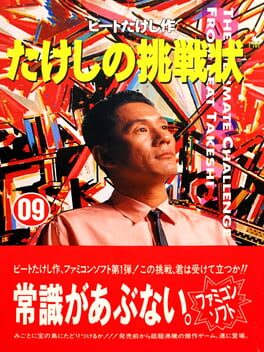
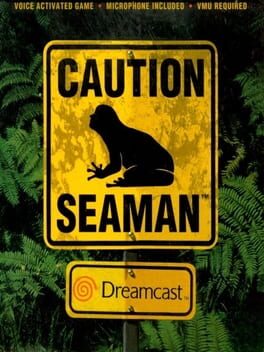

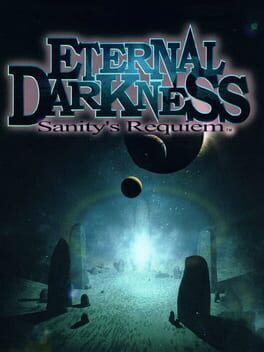

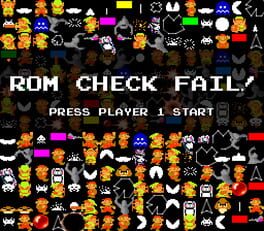
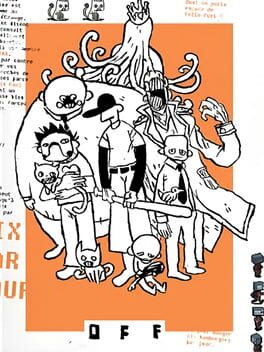
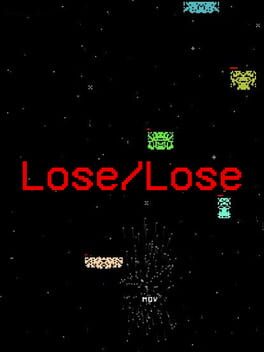
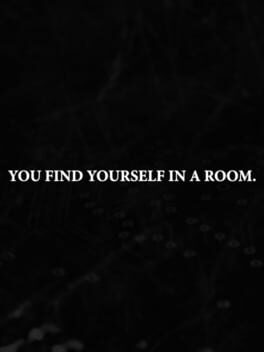
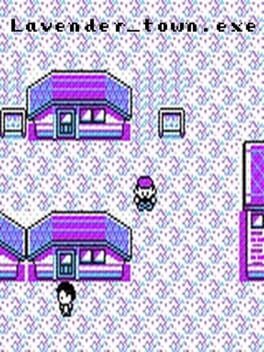
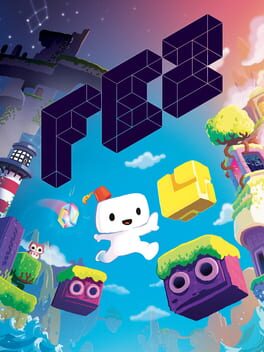
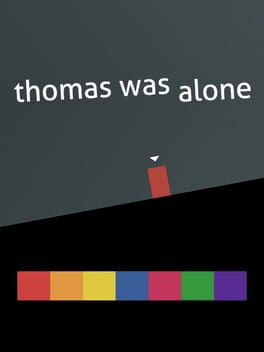

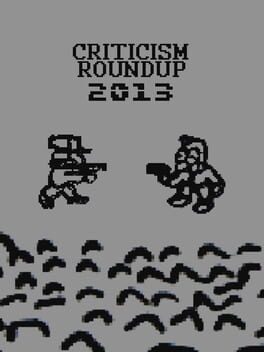
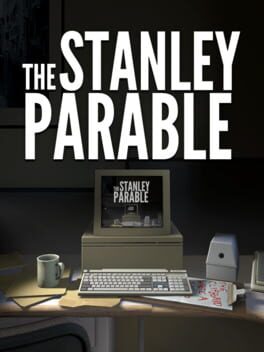

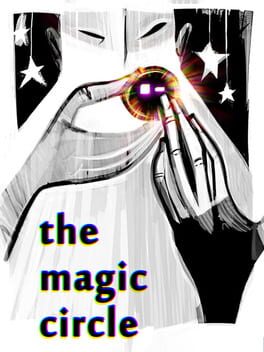
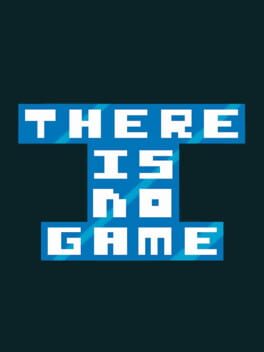
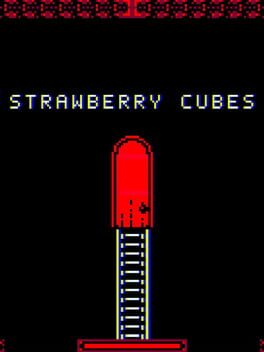
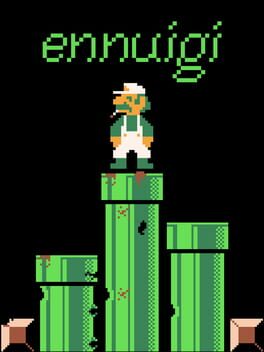


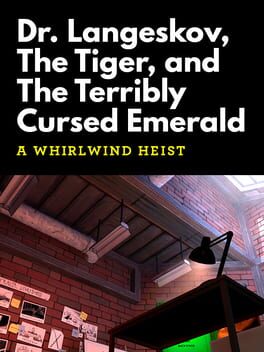
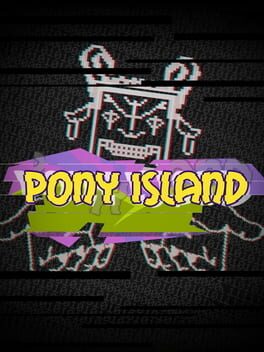

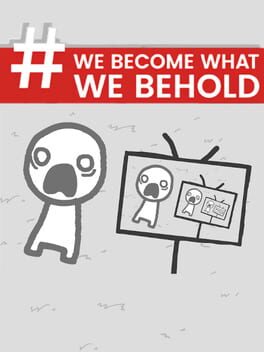

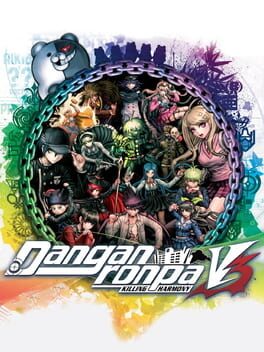
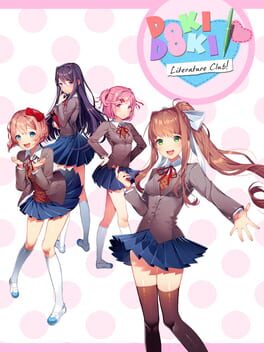

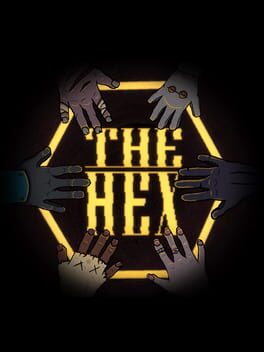
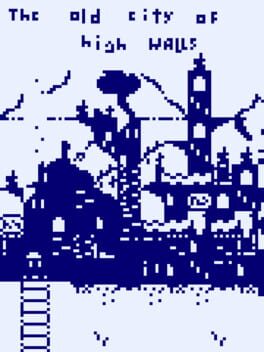
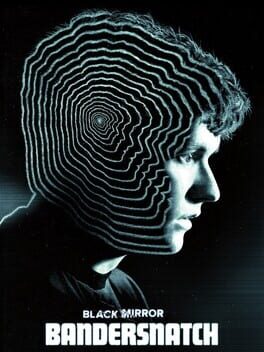
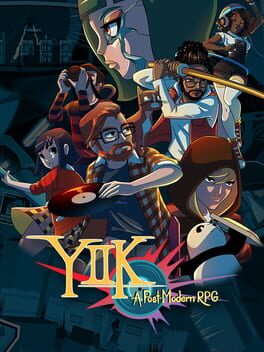
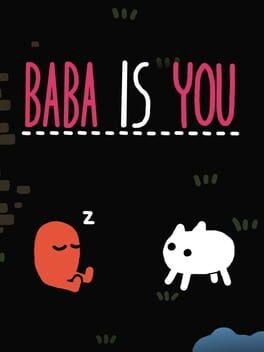
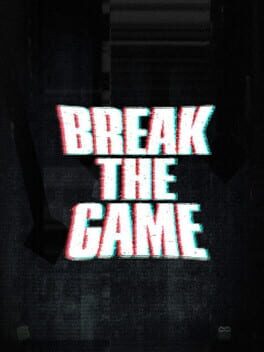
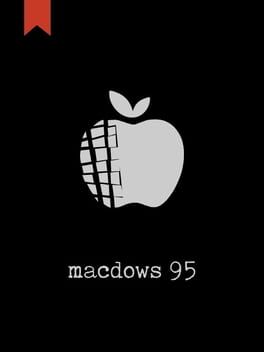
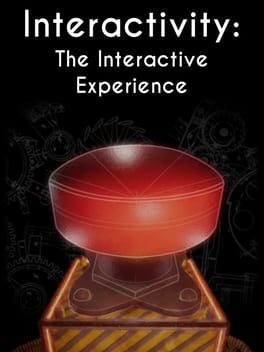
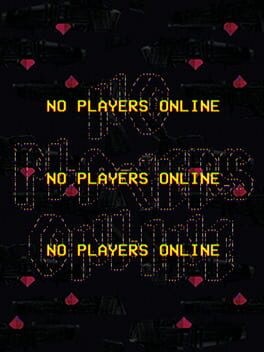
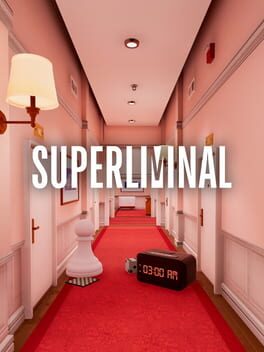

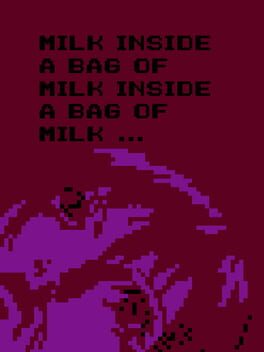

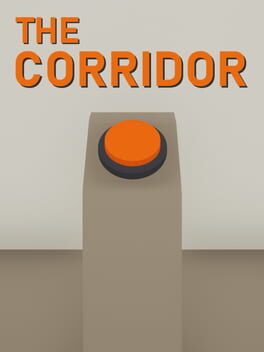
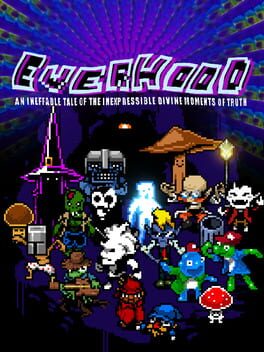
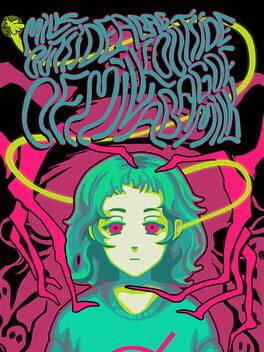

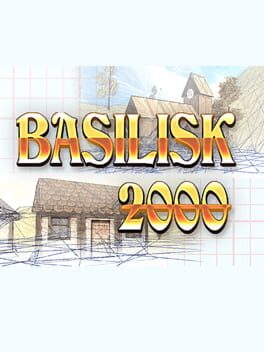
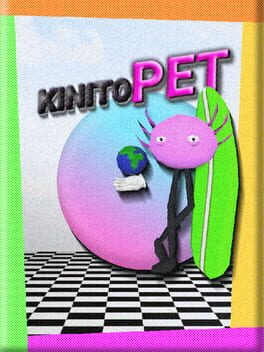
LordDarias
1 year ago